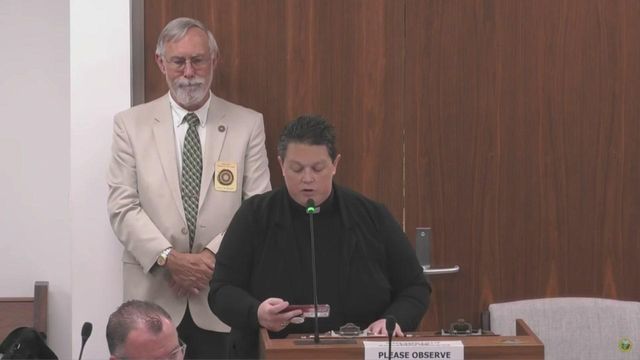Once-thriving Black Wall Street in Durham legacy endures today

Black Wall Street was a thriving African-American business district in Durham during the late 1800s and early 1900s. The area along Parrish Street centered around the Hayti neighborhood just east of downtown Durham, was home to over 200 Black-owned businesses, including banks, restaurants, theaters and shops.
The district was founded by African Americans excluded from doing business in white-owned establishments. Black people were not allowed to own businesses or property in white neighborhoods, so they created their community in the Hayti neighborhood.
In recent years, there has been a renewed push to revitalize Black Wall Street. The Hayti Heritage Center is working to preserve the district's history, and several new businesses have opened in the area.
"We have maintained the traditions over the years by providing a space for community healing, joy, and safety for patrons, artists, and visitors," said Angela Lee, Hayti Heritage executive artistic director.

The center is housed in the historic St. Joseph African Methodist Episcopal Church, founded in 1891 and listed on the National Register of Historic Places.
The center, a non-profit organization, preserves the history and culture of the Hayti community through various programs and events, such as visual arts exhibits, performing arts performances, film screenings and more.
"There is a uniqueness and beauty to this building that we must continue to honor and take care of," Lee said. "We have been here for years and plan to be around for generations."
The church building has always been an important monument in Durham. Booker T. Washington stated: "Never in all my travels have I seen a church as great as St. Joseph's."
Washington and W.E.B. Du Bois, two of the most prominent African-American leaders of the early 20th century, visited Durham. They praised it as a national model for the Black middle class.
Parrish Street was also home to the North Carolina Mutual Life Insurance Company, the nation's oldest and largest Black-owned insurance company.

Individuals like Monica Lee Johnson, who has been a client of the company for years, says her grandfather was a client and she wanted to continue that tradition.
"My grandfather, who is 96 years old, used to have a business when Black Wall Street was created," Johnson said. "Unfortunately, he lost his business in the 1990s. Since then, our family has made it a mission to support Black businesses, and that's why we love Mutual Life Insurance."
Johnson says another reason her family supports the company is that it also gives back to the community by supporting other Black business owners and donating to schools.
"It's funny because my daughter, who just graduated from college, wants to be an entrepreneur," Johnson said. "That is why learning about the history of many of these Black-owned businesses can help people like my daughter succeed. You can't be successful in the future if you do not learn from the past."
Here are some of the notable businesses that were located on Black Wall Street:
- Mechanics and Farmers Bank: The first Black-owned bank in North Carolina, founded in 1892.
- North Carolina Mutual Life Insurance Company: The largest Black-owned insurance company in the United States, founded in 1898.
- Merrick Building: A five-story office building, once the tallest in Durham, was built in 1910.
- The Carolina Theatre: A movie theater built in 1921, one of the few theaters in the South open to African Americans.
The prosperity of Black Wall Street ended in the 1940s when the city of Durham implemented urban renewal projects that displaced many of the residents and businesses in the Hayti neighborhood. The loss of these businesses was a major blow to the area, and it never fully recovered.

In 2021, Durham launched the Black Wall Street Legacy Project to preserve and promote the district's history. The project includes a walking tour, a documentary film and a series of educational resources.
According to a Durham Chamber of Commerce report, the number of Black-owned businesses in Durham County has increased by 56% in the last five years. This growth is outpacing the overall growth of businesses in the county, which has increased by 35% over the same period.
The report also says Black-owned businesses in Durham County are generating more revenue than ever. In 2022, Black-owned businesses generated $1.2 billion in revenue, up from $700 million in 2017.
Black Wall Street in Durham, North Carolina, was a once-thriving and prosperous African-American community that symbolized the resilience and determination of the Black community. Although the city's urban renewal projects destroyed it, its legacy is celebrated and remembered today.











